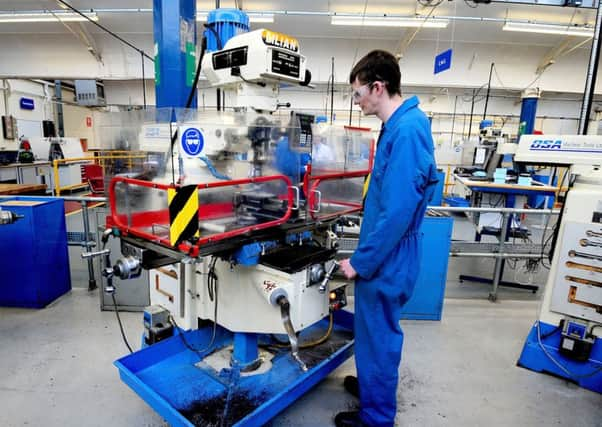Judith Cummins: We must invest in apprenticeships if cities like Bradford are to thrive


Bradford is a great city with a proud industrial heritage. Bradford has 1,200 manufacturing businesses, employing more than 25,000 people in the district, which accounts for 13 per cent of all employees locally compared with 8.3 per cent for Great Britain as a whole.
We face a significant challenge with the inter-connected problems of low skills and low wages. In Bradford South, 15 per cent of the working-age population have no qualifications compared with the UK average of eight per cent. Many people do not have the skills they would need to access good-quality, well-paid and secure jobs.
Advertisement
Hide AdAdvertisement
Hide Ad

The lack of skills makes Bradford a less attractive place for businesses to locate and invest in. A good example is Her Majesty’s Revenue & Customs, which cited the lack of appropriate skills as one of the reasons to relocate its offices from Bradford. That is why getting the skills policy right is essential to give places such as Bradford the economic boost that they so badly need.
The issue is becoming ever more urgent as we face the impact of new technologies in the world of work. The Future Advocacy report places Bradford South in the top 40 constituencies that are likely to be affected by automation. It also says that 35 per cent of jobs in Bradford are in occupations that are likely to shrink by 2030.
We recently had Bradford manufacturing week, which I was delighted to support. In just one week, more than 3,000 children crossed the doors to get that first-hand manufacturing experience in workplaces.
Advertisement
Hide AdAdvertisement
Hide AdAnother exciting area of work being developed in Bradford involves the industrial centres of excellence – or ICE – approach to post-14 careers and technical education. ICE gives business a partnership vehicle with local schools, colleges and the University of Bradford to ensure that education and learning meet the skills demands of businesses.
Those centres are good examples of how schemes that are locally led can deliver for businesses and encourage social mobility, but Bradford businesses and education providers have raised concerns with me about the operation of the apprenticeship levy.
I fully support the principles behind the levy, but its implementation has compounded the problems of under investment in training rather than improving the situation.
Apprenticeship starts have been significantly down since the introduction of the levy in May 2017. In July 2018, the total number of apprenticeship starts nationally was 25,200. Starts in Bradford South have fallen from 1,370 in 2015-16 to just 680 in 2017-18 – very nearly a 50 per cent drop. Several Bradford firms have told me that the complexity of the system is a major barrier to entry.
Advertisement
Hide AdAdvertisement
Hide AdThat was clearly set out to me when I had the privilege of attending the apprenticeship awards evening at Bradford College late last year. While we were discussing the fantastic successes of apprenticeships at the college, it raised a number of difficulties facing both the college and the many SMEs it works with.
Many of the latter find the administrative demands of the new apprenticeship system extremely difficult to manage – the college has had to create four new posts to help it to navigate the changes and support its employers.
I recognise that a new system takes time to bed in, but the Government’s approach needs more than just a little fine tuning. We need a more radical overhaul of our skills policy to help places such as Bradford get the growth and prosperity we deserve.
We have a situation where public policy, whether intentionally or unintentionally, has turbo-charged the London economy to the detriment of other towns and cities outside the capital.
Advertisement
Hide AdAdvertisement
Hide AdA debate about skills policy must not be just about how to support young people to enter the workplace; it also must consider those who are already working.
That is why the 45 per cent reduction in spending on adult education since 2010 is so short-sighted. If Government want business and individuals to see training as an investment and not as a cost, they must lead by example. To meet the wider training need of the economy, we need more focus on how the apprenticeship levy can be used to tackle the overall skills shortage.
Judith Cummins is Labour MP for Bradford South. She led a Parliamentary debate on the apprenticeship levy – this is an edited version.